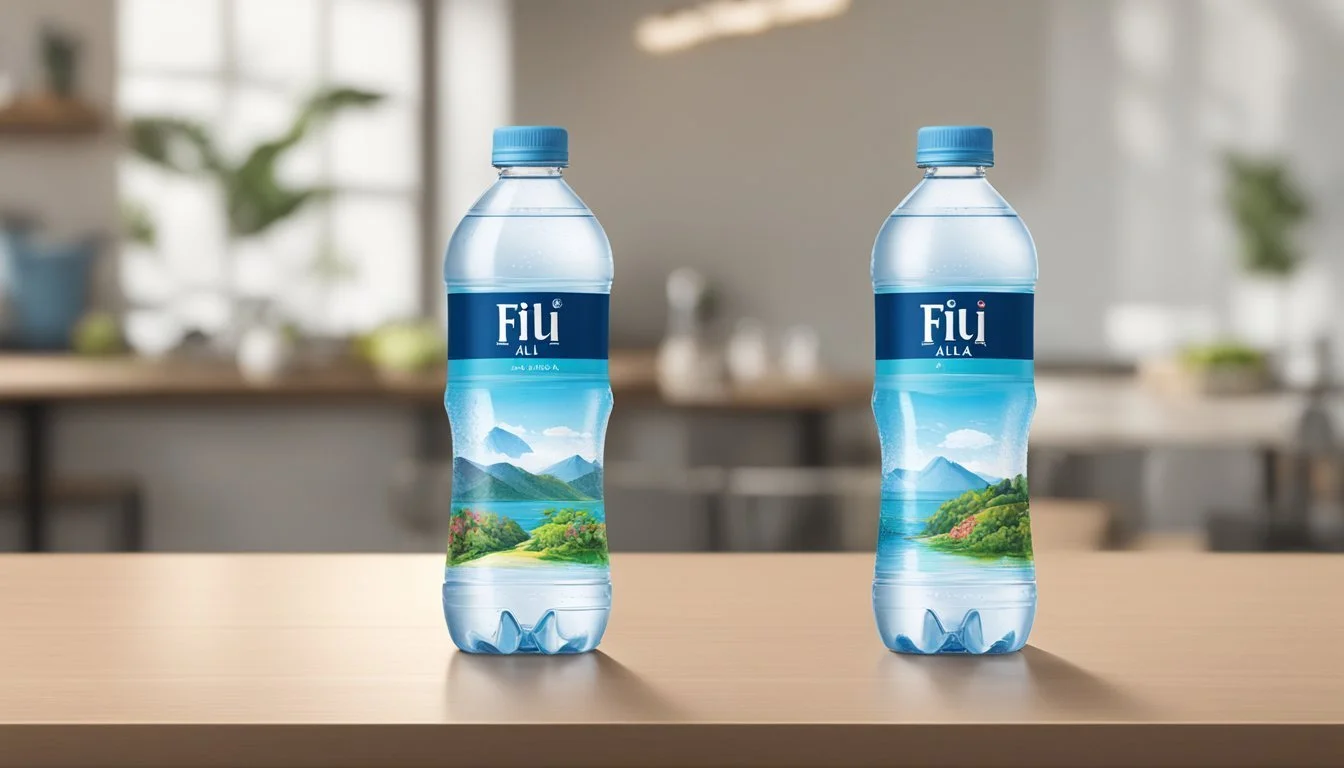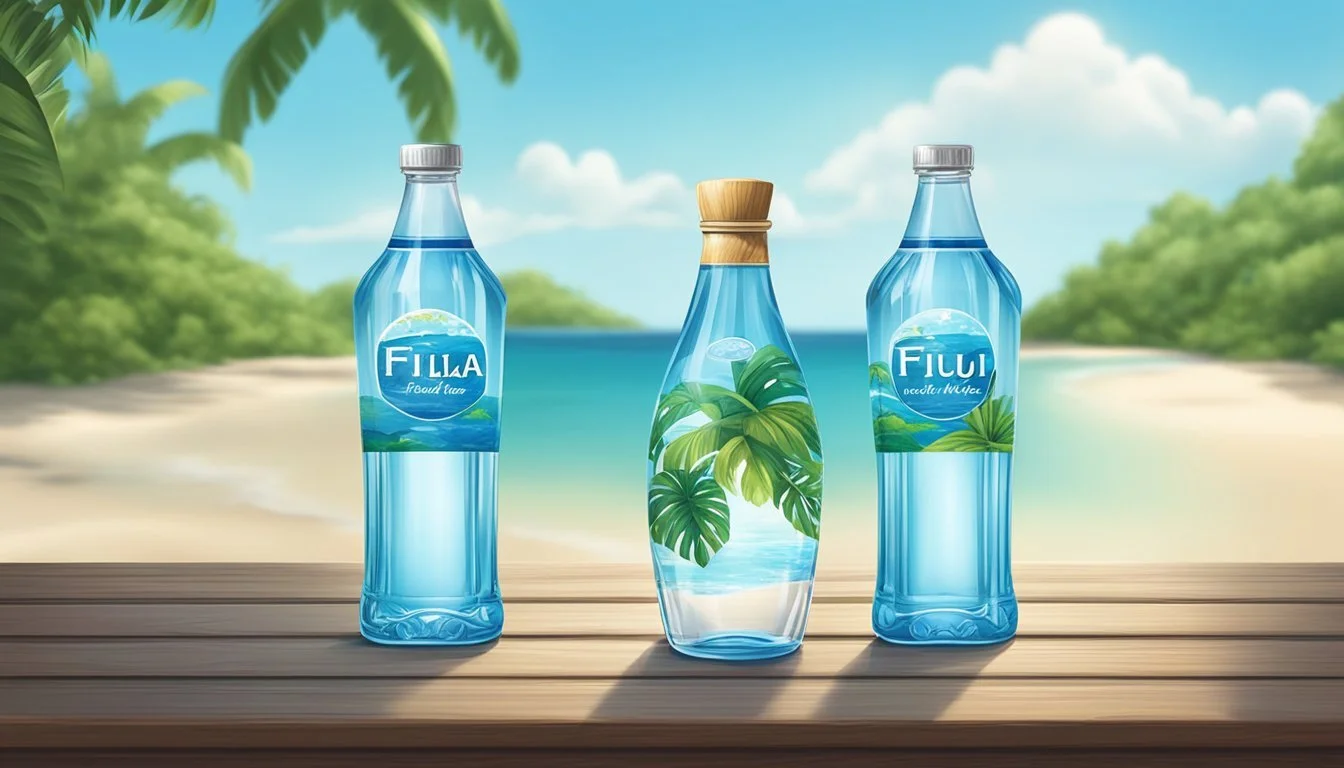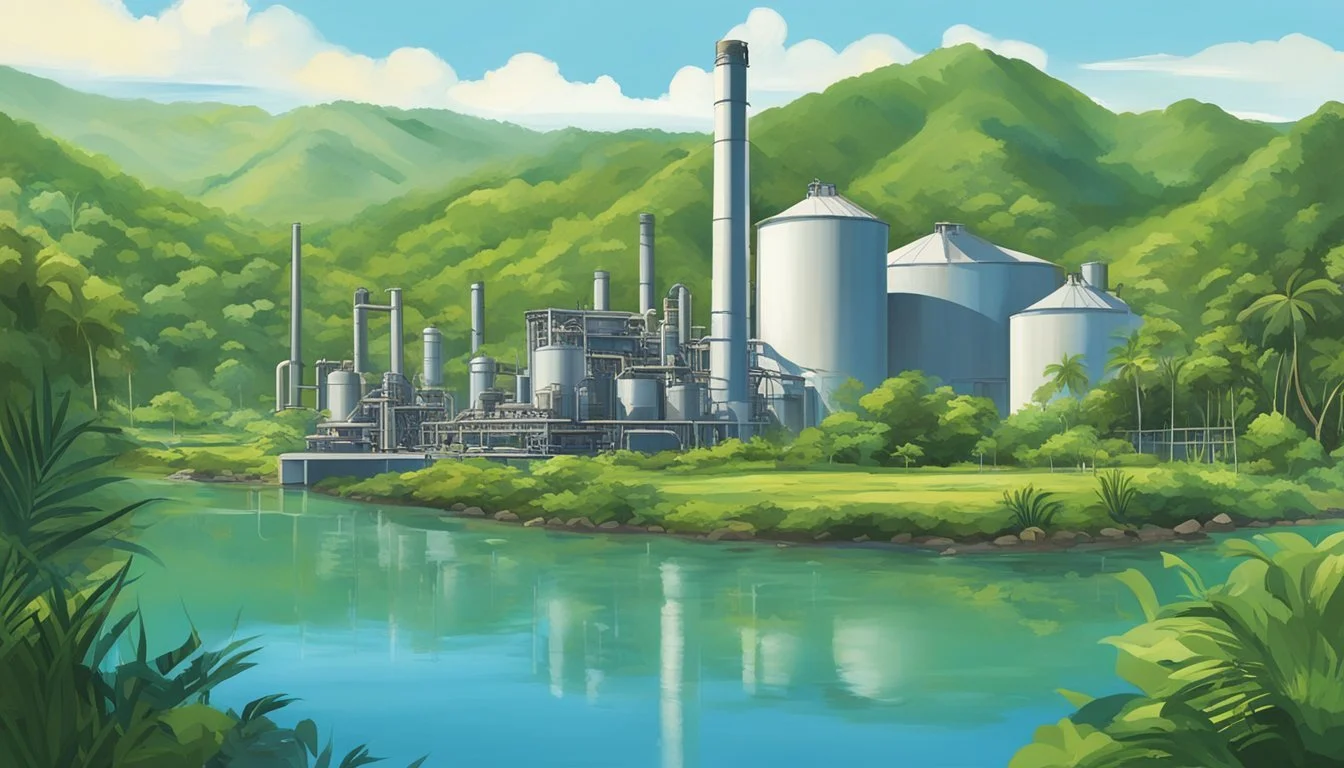Fiji vs. Tru Alka
Which Bottled Water is Better? The Ultimate Comparison
Choosing the right bottled water can be a daunting task given the myriad of options available. Fiji and Tru Alka stand out for their premium quality and distinct features. Fiji Water, sourced from an artesian aquifer in the Fiji Islands, is renowned for its naturally occurring minerals, giving it a smooth taste. Tru Alka, on the other hand, offers alkaline water that is purified and enhanced with electrolytes, appealing to health-conscious consumers.
Fiji Water boasts a unique mineral profile, making it not just a hydrating option but also a tasteful experience. The naturally occurring silica in Fiji Water is often cited for its potential health benefits, including supporting bone health and improving skin elasticity.
Tru Alka offers a different approach with its emphasis on alkalinity and added electrolytes. This makes it an attractive option for those pursuing a balanced pH level in their diet. Whether one prioritizes natural mineral content or alkaline properties, understanding the unique attributes of these waters can guide consumers in making an informed choice.
Understanding Bottled Water
Bottled water comes in various types, each with unique characteristics and benefits. Two primary types include spring water and purified water.
Spring Water: This water is sourced from natural springs. Often rich in minerals and electrolytes, it can offer a clean, refreshing taste.
Purified Water: Created through processes like distillation, reverse osmosis, and deionization, purified water is free from impurities, making it very clean.
Many people prefer bottled water over tap water due to its taste and perceived purity. Bottled water often undergoes extensive testing and filtration processes, which can enhance its appeal.
Health-Conscious Choices: Some bottled waters are enhanced with additional minerals and electrolytes. These elements can aid hydration and support bodily functions, appealing to health-conscious consumers.
Environmental Impact: One major concern with bottled water is its effect on the environment. Plastic bottles contribute significantly to pollution and waste. Many companies are now focusing on sustainability by using recyclable materials or offering reusable bottles.
Key Points:
Spring Water: Natural source, rich in minerals.
Purified Water: Processed for purity.
Electrolytes: Often added for health benefits.
Environmental Concerns: Plastic waste and sustainability efforts.
Understanding these aspects can help consumers make informed choices when selecting bottled water.
Comparing Quality and Purity
Fiji and Tru Alka both aim to provide high-quality, pure drinking water but differ in their filtration processes, mineral content, and potential contaminants. This section delves into these aspects to compare the quality and purity of both brands.
Filtration and Purification Processes
Fiji Water undergoes a natural filtration process as it passes through volcanic rock, which is claimed to add natural minerals and electrolytes to the water.
Tru Alka, on the other hand, uses a multi-stage process that often includes reverse osmosis and alkaline ionization to enhance purity and increase pH levels. Reverse osmosis is a rigorous method that removes many impurities and contaminants.
Both brands adhere to FDA regulations for bottled water, ensuring safety and quality. Tru Alka’s use of alkaline ionization is particularly focused on increasing the pH level, which can affect the taste and perceived health benefits.
Mineral Content and Health Benefits
Fiji Water is rich in natural minerals such as silica, calcium, magnesium, and potassium. Its mineral content contributes to a smooth taste and potential health benefits, like improved hydration and bone health. The water’s pH level is around 7.7, which is slightly alkaline.
Tru Alka tends to have a higher pH level, typically around 9.5, making it more alkaline. It also contains added minerals like sodium, potassium, and chloride, which are often marketed for their electrolyte-enhancing properties.
Fiji’s natural mineral content contrasts with Tru Alka’s intentional fortification of minerals and electrolytes, making each brand unique in its offering.
Potential Contaminants
Fiji Water’s natural source helps in maintaining a high standard of purity, but it still faces scrutiny regarding microplastics and single-use plastic packaging, which can introduce contaminants over time.
Tru Alka’s stringent filtration process, including reverse osmosis, significantly reduces the risks of contaminants such as heavy metals and microplastics. This rigorous purification ensures higher purity levels but does not entirely eliminate concerns about packaging-related contaminants.
Both brands work within FDA regulations and standards, ensuring that their bottled water is safe for consumption. Yet, the source and filtration methods play critical roles in determining their relative purity and quality.
By dissecting their filtration processes, mineral content, and potential contaminants, consumers can make informed choices based on what attributes are most important to them in bottled water.
Taste Profile Assessment
When comparing Fiji and Tru Alka, their distinct taste profiles are a significant factor for consumers. Testing these waters provides insights into which may be more appealing based on factors such as flavor, pH, and mineral content.
Flavor Differences and Taste Tests
Flavor Differences: Fiji water is renowned for its natural silica content, giving it a smooth feel. It has a mineral-rich taste due to its artesian source. Tru Alka, with a higher alkaline pH, often tastes cleaner and less metallic than neutral pH waters like Aquafina and Dasani.
Taste Tests: Participants often describe Fiji's taste as "soft" and "earthy," while Tru Alka's higher pH contributes to a "crisp" and "refreshing" flavor profile. In blind taste tests, Fiji tends to stand out against competitors like Evian and Smartwater for its unique flavor, whereas Tru Alka is favored for its alkalinity, similar to Essentia.
Health and Hydration
Choosing between Fiji and Tru Alka often comes down to their benefits for health and hydration. This involves examining the alkaline nature, presence of electrolytes, and effects on regular hydration practices.
Benefits of Alkalinity and Electrolytes
Fiji Water and Tru Alka each offer unique advantages through their mineral content. Tru Alka, being an alkaline water, boasts a high pH level, which can aid acid-base balance. Alkaline water like Tru Alka can help neutralize stomach acid and improve hydration efficiency.
Fiji Water, with its natural artesian origins, contains electrolytes such as calcium, magnesium, and silica. These minerals support overall hydration, help maintain bone health, and promote smooth skin.
Hydration and Consumer Habits
Consumers prioritize different features when choosing bottled water. Health-conscious individuals often look for added benefits such as electrolyte enhancement present in Fiji Water or high pH levels in Tru Alka.
Tru Alka’s higher pH can make it more appealing to those seeking to counteract acidic diets. Fiji Water’s naturally occurring minerals can support daily hydration needs while providing a refreshing taste that encourages more frequent water consumption.
Convenience and availability also play roles in consumer habits, with some users preferring the broader distribution and slightly lower price point of Tru Alka over Fiji Water's premium pricing.
Environmental and Sustainability Considerations
When comparing the environmental and sustainability practices of Fiji and Tru Alka, it is essential to analyze packaging materials, carbon footprint, water sourcing, and environmental policies. Both brands have distinct approaches and priorities in these areas.
Packaging Materials and Waste
Fiji Water has transitioned to using 100% recycled PET for its bottles, reducing reliance on single-use plastics. This step is significant in minimizing plastic waste.
In contrast, Tru Alka often opts for glass bottles and boxed water options, which are generally more environmentally friendly than traditional plastic bottles.
Glass is fully recyclable and can be reused multiple times, substantially decreasing environmental impact. Boxed water presents an eco-friendly alternative as it is often made from renewable materials and is biodegradable.
Carbon Footprint and Water Sourcing
Fiji Water's carbon footprint is influenced by its artesian water source from the remote islands of Fiji. Transporting this water globally adds to its carbon emissions.
Tru Alka, on the other hand, sources its spring water domestically, significantly reducing transportation distances and associated emissions.
Additionally, it's essential to consider the energy required for the packaging materials. Recycled PET requires less energy than producing new plastic, but glass and boxed water have even lower environmental impacts if recycled properly.
Brand Environmental Policies
Both brands have made strides in sustainability, but their policies differ. Fiji Water emphasizes transitioning to recycled materials and promoting recycling practices.
They have also initiated reforestation projects to offset carbon emissions.
Tru Alka promotes using sustainable packaging and sourcing water responsibly. Their commitment includes ensuring safe water practices and supporting environmental conservation projects.
Comparatively, Tru Alka's focus on sourcing and packaging places a stronger emphasis on reducing their overall environmental footprint.
Branding, Marketing, and Consumer Perception
Fiji and Tru Alka excel in strategic branding and marketing, targeting distinct market segments. Consumers perceive these water brands differently due to their unique selling points, marketing efforts, and brand reputations.
Market Positioning and Brand Reputation
Fiji positions itself as a premium bottled water brand originating from the Yaqara Valley in Fiji, emphasizing its natural artesian water source. This positions Fiji as a luxury product aimed at health-conscious consumers willing to pay a higher price for perceived purity and exotic provenance.
Tru Alka, on the other hand, markets itself based on its alkaline water formulation, targeting consumers focused on potential health benefits linked to higher pH levels. This brand appeals to a niche market of health enthusiasts and those seeking functional beverages. The clear but distinct market positions highlight the contrasting strategies of Fiji and Tru Alka in the bottled water industry.
Advertising and Public Relations
Fiji employs high-end advertising strategies, leveraging visually appealing campaigns that emphasize the pristine and exotic nature of its water source. The use of celebrities and endorsements in adverts boosts its luxury image and encourages premium pricing. Fiji's PR efforts focus on sustainability and environmental responsibility, although the brand's long supply chain from Fiji can draw criticism.
Tru Alka's advertising centers on health benefits and scientific claims related to alkaline water. Campaigns include testimonials from athletes and nutrition experts, reinforcing the brand's healthy image. Tru Alka also engages in PR initiatives that include sponsoring fitness events and promoting eco-friendly packaging to align with their consumer base that values health and environmental sustainability.
Consumer Preferences and Trends
Consumer perception for Fiji is strongly tied to luxury, purity, and brand loyalty. Many consumers favor Fiji for its smooth taste and the exotic appeal of its water source. Despite its higher price, Fiji enjoys high favorability ratings among U.S. adults, particularly those with higher disposable incomes.
Tru Alka appeals to a trend towards functional beverages and health-focused consumption. Consumers keen on the purported benefits of alkaline water often choose Tru Alka for its higher pH level. This trend is particularly noticeable among younger demographics and the fitness community, highlighting a growing market for water brands that offer health enhancements.
Economic Factors
The economic impact of choosing between Fiji and Tru Alka bottled water is driven by their comparative costs, market share, and industry presence.
Comparative Costs and Value
The price of bottled water varies based on brand, features, and marketing. Fiji Water, known for its premium artesian source, is typically priced higher. A 500ml bottle of Fiji can range from $2.00 to $2.50. Tru Alka, positioned as an alkaline water brand, may have a similar price range but often slightly lower.
Fiji Water:
Price: $2.00 - $2.50 (500ml)
Value Proposition: Premium artesian water, marketed for purity and taste.
Tru Alka:
Price: Approximately $1.80 - $2.20 (500ml)
Value Proposition: Alkaline water with health benefits, targeted towards a health-conscious audience.
Pricing influences buying decisions and reflects brand positioning in the market.
Market Share and Industry Analysis
Fiji Water holds a significant share in the premium bottled water segment. Its extensive marketing and distribution make it a popular choice in the United States. The brand's strong presence influences market trends, with many consumers associating Fiji with luxury and quality.
Tru Alka, while not as widely known, has carved out a niche in the growing alkaline water market. The interest in health and wellness promotes growth for brands like Tru Alka.
Market Insights:
Fiji Water: High market penetration in premium segment.
Tru Alka: Growing niche market in health-focused segment.
The market dynamics between these two brands illustrate the diverse landscape of the bottled water industry.
Final Comparison and Conclusion
When comparing Fiji and Tru Alka, several factors come into play. Both brands boast unique selling points that appeal to different preferences and needs.
Fiji Water is renowned for its natural artesian origin and mineral content. Sourced from the Fiji Islands, it offers a natural pH of around 7.7, making it slightly alkaline. Many consumers appreciate its smooth taste and the exotic branding associated with its origin.
Tru Alka, on the other hand, is marketed as highly alkaline water, with a pH level of approximately 9.5. This high alkalinity is achieved through ionization processes, which can be appealing to those seeking the potential benefits of alkaline water. Its clear and crisp taste differentiates it from other bottled waters.
Here is a quick comparison table:
Feature Fiji Tru Alka Origin Fiji Islands Ionized source pH Level Approximately 7.7 Approximately 9.5 Taste Smooth Clear, crisp Packaging Single-use plastic Single-use plastic Price Range Mid to high Varies
In terms of recommendation, choice depends largely on individual preferences.
For those prioritizing natural origin and smooth taste, Fiji may be the better choice.
For those seeking high alkalinity levels, Tru Alka offers a compelling option.
Both waters cater to specific consumer needs, making either a valid choice based on personal health goals and taste preferences.
More About Fiji
Fiji vs Mountain Valley Spring Water: Which Bottled Water is Better?
Fiji vs Whole Foods Italian Still Mineral water: Which Bottled Water is Better?
More About Tru Alka
Hawaiian Springs vs Tru Alka: Which Bottled Water is Better?
Icelandic Glacial vs Tru Alka: Which Bottled Water is Better?
Mountain Valley Spring Water vs Tru Alka: Which Bottled Water is Better?
Nestle Pure Life vs Tru Alka: Which Bottled Water is Better?
Tru Alka vs Cascade Mountain: Which Bottled Water is Better?
Tru Alka vs Kirkland Signature: Which Bottled Water is Better?
Tru Alka vs Richard's Rainwater: Which Bottled Water is Better?
Tru Alka vs Talking Rain AQA: Which Bottled Water is Better?
Tru Alka vs Whole Foods Italian Still Mineral water: Which Bottled Water is Better?





